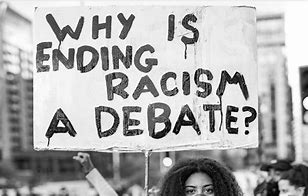Below is a review of the posts (on Facebook, LinkedIn, and X [formerly Twitter]) from the past week. You can check out the full posts by clicking on the links.

The post on Sunday 3/24/2024 told us to never ban employees from discussing pay. Why? Because it is illegal to do so. Section 7 of the National Labor Relations Act (the content of which is in the post) applies to all employers, union and non-union. Anything that has to do with the terms and conditions of employment – which certainly covers wages – is covered, meaning employers cannot legally bar discussions among employees about it. Where is the most common place this prohibition appears? See the post.
TAKEAWAY: Stay on the right side of legal – don’t ban employees from discussing their pay (or other terms and conditions of employment). Consult an employment lawyer if you have related issues or questions.

The post on Monday 3/25/2024 told us Everybody hurts: rethinking the material harm requirement in employment discrimination claims. The Supreme Court recently heard argument in the case of Muldrow v. City of St. Louis; the Court’s decision could expand the scope of Title VII’s discrimination protections. How? the Court could expose all of an organization’s personnel decisions to legal scrutiny, not just those that pose a “materially significant disadvantage” to an employee. Let’s take a deeper dive.
Sergeant Jatonya Muldrow is a longtime St. Louis police officer who handled high-profile criminal investigations. More details on her background (necessary to understand her allegations) are in the post. In 2017, as a result of a job transfer, some things changed for Muldrow (see the post), but her base salary and rank remained the same after her transfer. She alleged that she was discriminated against based on sex when she was transferred to an arguably less prestigious position, a violation of the plain text of Title VII.
The question is whether what happened to Muldrow is an actionable “adverse employment action.” As the law currently stands, in order to prevail in a discrimination case, employees must show that they suffered some harm or disadvantage that is tangible, impactful, and nontrivial. Typical adverse employment actions include those listed in the post. Under current standards, a lateral transfer with no change in pay or benefits is generally not considered an adverse employment action and cannot be challenged in court. But Muldrow argues that Title VII does not require any particular harm, rather that it is sufficient that she suffered different treatment because of her sex. The City of St. Louis’ argument is noted in the post.
So what could happen if the Supreme Court agrees with Muldrow? Employers could see virtually ALL of their personnel decisions being subject to the heightened scrutiny of Title VII. This would extend to what many consider trivial, including those everyday things listed in the post. And when looking at such a decision in the context of other recent Supreme Court decisions on employers’ DEI programs, it might open the floodgates to an increase in “reverse” discrimination cases (a description of which is in the post). And what would then be the target and possible effect/implication? See the post.
But what if the Supreme Court agrees with Muldrow and issues a narrow decision, finding only that workplace transfers would be subject to the ruling? Or the Court could agree with the City and affirm the current standard.
TAKEAWAY: Employers need to know the law, especially the potential legal implications of actions they take as to employees. Keep your employment lawyer on speed dial.

The post on Tuesday 3/26/2024 told us the City to repair broken streetlights after 9-month dispute between it, power co., and HOA. Homeowners living in the Woodstock Village Subdivision say they’ve lived in the dark for months while waiting for the City to fix their streetlights that have been broken since June. The lack of repairs boils down to a dispute over jurisdiction between the City, Power Company, and Homeowner’s Association. And while the fight goes on, residents say criminals have noticed the outage and the lack of light has resulted in an increase in crime.
One of the five broken streetlights sits on the corner of Rainsborough Road and Rainsborough Circle. Coleen Paderewski lives directly across the street. She has seen kids walking to school in the dark during the winter months. She’s also worried about the safety of a child standing on the sidewalk when she backs out of her driveway in the dark. The broken lights have also changed life in the community, and not for the better. See the post (which includes police data).
Residents don’t know who will repair the lights. Months of emails show the responsibility being tossed back and forth between the City, Power Company, and HOA. Paderewski questions why what happened to broken lights in the past is not happening now. The City replied – see the post. Both the City and Power Co pointed fingers at each other – and the HOA. And at the end of the day, a City spokesperson said “Whether the HOA is responsible, whether Rocky Mountain Power is responsible, or whether Murray City is responsible, isn’t clear.” Which doesn’t help the residents. But in mid-March the City gave an answer – see the post. Why it (supposedly) took so long to resolve, and when the lights will be repaired, are also mentioned. NOTE: there is also a short VID as part of the post.
TAKEAWAY: When it comes to life in a condo or homeowners’ association or cooperative, everyone (owners, Board members, management agents) must know who is responsible for what repairs and what expenses. A community association lawyer can help.

The post on Wednesday 3/27/2024 was about workplace implications from denial of certiorari in race-neutral admissions case. You are probably wondering why you (should) care about a federal case (Coalition for TJ v. Fairfax County Board), not even a Pennsylvania case, involving race-neutral school admissions procedures. The answer is because the Supreme Court’s denial of certiorari (meaning it did not agree to hear the appeal, thus leaving, in place the appellate court’s decision) now must be considered hand in hand with the Court’s landmark college affirmative action decision (Students for Fair Admissions v. President and Fellows of Harvard College (SFFA)) when looking at race-neutral efforts to increase diversity (whether in admissions or the workplace). So let’s look more closely at the appellate court’s decision in Coalition for TJ and try to glean clues for how workplaces may continue to ensure diversity.
Shortly before the Supreme Court struck down the university admissions processes at Harvard and the University of North Carolina (UNC) in the SFFA decision, the Fourth Circuit upheld the admissions policies at a top-ranked public school in Fairfax County, Virginia, in Coalition for TJ. The cases had completely different facts and policies relative to race in admissions, but the decision in both relied in part on the Equal Protection Clause of the Fourteenth Amendment to the Constitution. The Fourth Circuit decision came about from changes Fairfax County made for admissions at Thomas Jefferson High School for Science & Technology (TJ). Details about the school, admissions and the policy changes are in the post. Significant is that none of TJ’s admissions policies considered an applicant’s race. However, the plaintiff in Coalition for TJ alleged that the policies amounted to intentional discrimination in violation of the Equal Protection Clause. More details on the Plaintiff’s argument, including background data used to support it, are in the post.
On February 25, 2022, the District (trial) Court judge applied strict scrutiny and held that TJ’s admissions policies were not narrowly tailored to further a compelling interest and thus violated the Equal Protection Clause. The judge went even farther – see the post. But then over a year later (May 2023) the Fourth Circuit reversed and remanded (sent it back to the District Court). The Fourth Circuit’s rationale is in the post. And, the Fourth Circuit said, that meant that TJ’s admissions procedures should be reviewed under the rational basis standard (which is far less demanding than strict scrutiny). After a rational basis review, the procedures were held to serve a compelling interest, warranting continuation.
So again, why do you care? Because the 2 cases together show what level of judicial scrutiny (strict or rational basis) may be applied to determine legality of a practice. When each has been applied in the past is discussed in the post. But because the Supreme Court did not grant review of Coalition for TJ, it did not answer the question of what level of scrutiny should be applied to the use of holistic race-neutral factors where diversity was an underlying goal. But given the procedures of the Supreme Court and vote on the SFFA decision (see the post for details), one can see how the Court may have gotten to its denial of cert in Coalition for TJ. The Chief Justice’s carve-out in SFFA (discussed in the post) may be key. Because the carve-out is broader than the admissions practices at issue in Coalition for TJ, so it could be argued that the practices at issue in Coalition for TJ involve race less directly than those expressly permitted (via carve-out) under SFFA. So maybe that’s why cert was denied.
While the Fourth Circuit’s decision is not binding in Pennsylvania, it is good to know the arguments (and fact that the Supreme Court denied review), especially when considering employment policies and programs (see, it did come back around!). DEI programs are varied and their legality can depend on how they are carried out in the workplace, knowing that Title VII prohibits consideration of race in employment decisions. There have been three main lines of attack on DEI programs since SFFA – they are identified and explained in the post and bring in other recent appellate decision and at least one case pending with the Supreme Court that is discussed in this blog for about our post on Monday 3/25/2024. And while the legal standards governing the issues in TJ and those applied to employer DEI programs are technically different, the Equal Protection Clause does not apply to private employers, and Title VII prohibits race-conscious decisions, those arguing against DEI programs in the workplace have lumped all of these decisions together and hope for changes in the law (or its interpretation). And that has caused employers to (re)act relative to existing or new workplace DEI policies and programs.
TAKEAWAY: Employers must constantly review their policies and programs, especially in the DEI area, to ensure they remain within whatever are the legal boundaries at the time – and seek legal advice too.

In the post on Thursday 3/28/2024, we saw that workplace complaints rise again – here’s the top discrimination claim. The pandemic caused a lull in complaints in 2020 and 2021 – because many people were working remotely. But then the numbers rose in 2022 and 2023 according to EEOC statistics. The EEOC files suits in some cases – how much it recovered in 2023 is in the post (which is a slide deck). And what has been the most common charge in recent years? Retaliation. Bet you didn’t see that coming. The comparison numbers for that type of claim and others are in the post. Why might that be the case? See the post for some possible explanations.
TAKEAWAY: Employees need not prove any underlying claim of discrimination to prevail on a retaliation claim – employers need to keep this in mind. Yep, get legal assistance.

The post on Friday 3/29/2024 we saw that creditors move to force Giuliani to insure his condo until it’s sold to pay debts. Because we know you are wondering why we included this post, we pointed you to the last line. We will circle back to that in a bit.
So Rudy Giuliani filed for bankruptcy protection after being found liable to election workers to the tune of $148 million in a state court matter. As part of that case, some of his creditors are trying to force him to insure his FL condo until it is sold. Because the condo is one asset to which they look for collection and its uninsured status leaves it as a risk. The Bankruptcy Code requires that debtors (those who have filed) protect assets. Giuliani valued the condo at $3.5M; the local tax assessment is noted in the post. As is the amount of the lien filed against it by the IRS. But Giuliani said he cannot afford the insurance premiums on the condo. This is a refrain heard even outside of bankruptcy by owners, especially those in FL, due to drastic increases in insurance premiums; more details on that are in the post. And what else is a problem for Giuliani relative to the FL condo? Now go back to the last line in the post. Would your association be standing in line with other creditors for that?
TAKEAWAY: it doesn’t matter who the owner is, they are still liable to pay assessments and associations should collect arrears as the law allows. You may need a lawyer familiar with the interplay of community association and bankruptcy laws.

Finally, in the post yesterday 3/30/2024, we discussed DEI under scrutiny: federal appellate court strikes down ban on workplace DEI training under First Amendment. This dovetails with our post on Wednesday 3/27/2024. On March 4th the federal Eleventh Circuit struck down part of a politically charged Florida law known as the “Stop WOKE Act” (“IFA”) that sought to restrict workplace training on certain DEI concepts as unconstitutional under the US Constitution’s First Amendment. So let’s look more closely at how DEI restrictions may violate employers’ right to free speech.
The subject law would have prohibited employers from holding mandatory workplace training programs discussing certain DEI-related topics. That was part of a broader law signed by Governor DeSantis in April 2022 to limit DEI in education and employment. The unanimous three-judge panel for the Eleventh Circuit ruled that the restriction was a content- and viewpoint-based speech restriction. What the law at issue provided, the state’s argument, and the analysis behind the Eleventh Circuit’s decision are all in the post.
The suit came about because two employers who wanted to mandate DEI training programs for employees and a firm that contracts with employers to host such meetings challenged the mandatory-meeting provision of the IFA on constitutional, free speech grounds. In August 2022, a federal trial court judge issued a preliminary injunction blocking the IFA. And then came the US Supreme Court’s June 2023 decision in Students for Fair Admissions, Inc. v. Harvard College (SFFA decision) which is discussed in both this post and above in this blog about our post on Wednesday 3/27/2024. The state’s argument on appeal is detailed in the post. The Eleventh Circuit disagreed and that that the state could not characterize or reframe the law as a conduct regulation since it prohibited employers from holding training programs on particular subjects that the state disfavors. And the court went on as noted in the post, applying strict scrutiny (again, see above in this blog and our post on Wednesday 3/27/2024). The Eleventh Circuit also shot down the state’s argument that since the IFA is like Title VII, both are unconstitutional.
TAKEAWAY: So, what do employers do now in light of the various federal appellate decisions and the Supreme Court’s SFFA decision? Whatever their employment lawyer advises in light of the evolving law in this area.

 York, Pennsylvania 17403
York, Pennsylvania 17403